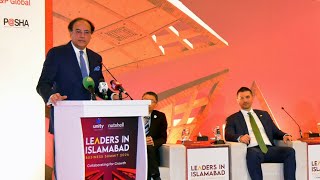ISLAMABAD: Economic Advisory Group (EAG) has suggested reducing tariff and non-tariff restrictions, greater integration with regional trade blocs, reducing custom and regulatory duties, and replacing them with a uniform tariff across all sectors.
According to ‘EAG Vision’ document, which gave comprehensive suggestions for preparation of economic policy and new vision for economic transformation, under four themes: revisiting pricing regimes which currently govern agriculture and commodities sectors; revamping of the education system with the aim to introduce and mainstream pathways for vocational training at the level of higher and post-secondary education; reduction in tariff and non-tariff trade restrictions and greater integration with regional trade blocs; and finally, rethinking industrial policy with special emphasis on moving away from picking winners to rewarding innovators, improving land-use within cities, and simplification on the tax code.
The EAG Vision document further suggested the government, especially Ministry of Planning, to replace support price in agriculture sector with crop insurance for small farmers. It suggested liberalising the licensing regime for setting up factories.
It asked to revisit the Provincial Sugar Factories Control Act and the relevant laws, and reform them with the objective of promoting competition. It was also suggested that in line with recommendations under tariff reforms, have a uniform tariff on the import or any commodity.
It suggested to allow businesses to import any commodity anytime without requiring any approvals and they should allow to store commodities to incentivize the development of storage infrastructure.
EAG formed to deliberate on Pakistan’s economic policies
The EAG Vision document suggested strengthening industrial and infrastructure capacity so as to attract efficiency-seeking Foreign Direct Investment (FDI) rather than market-seeking FDI.
It asked to actively engage with regional trading blocs with the aim to either join them or enter into an FTA with them. Globally, intra-regional trade average 40 percent or more, while for Pakistan, it is less than five percent.
It is also suggested that there is also a need for targeted interventions for Skill Development Programs. It suggested introducing and strengthening high-tech/end trades like artificial intelligence, robotics, 3D animation, game development, android, Apps development, cloud computing, renewable energy security, industrial automation, etc. It is also suggested to maximise industry ownership through apprenticeship legislation and time-bound and target-specified incentives.
There is a need to develop financial market to increase sources of funding for businesses; (i) work with relevant departments at the national and sub-national level to reduce compliance costs for businesses with respect to obtaining access to utilities, paying taxes and trading across borders, (ii) work with the judiciary to reduce contract enforcement costs for business and other necessary legal reform, (iii) work with city government to reforms zoning regulation to facilitate domestic commerce and reduce the cost of commercial space for businesses, (iv) focus on public investment reform, which is important as the private sector is not interested in going to vast parts of Pakistan. In such a scenario, the government’s ability to design and execute publicly-funded projects and enabling infrastructure is critical.
Copyright Business Recorder, 2021
























Comments
Comments are closed.